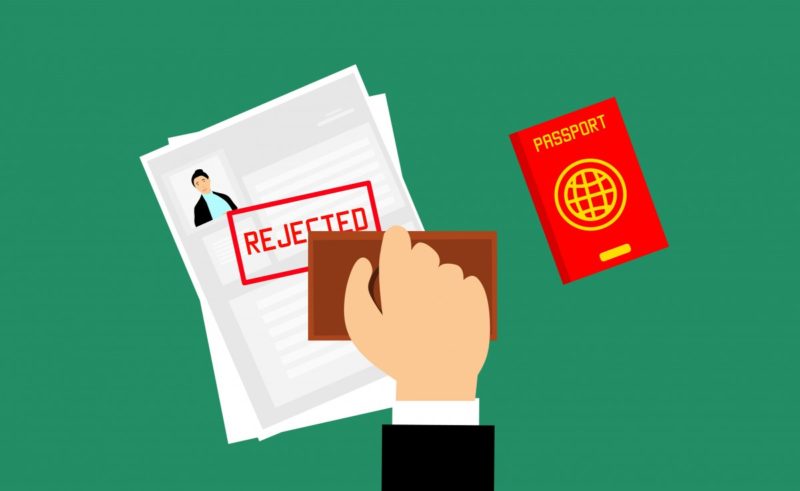No matter how meticulously you fix your automobile after an accident, the value will reduce, but what to do when your insurance denies you the diminished value claim? If your automobile is totaled in an accident, you may be entitled to reimbursement for the diminished value.
A loss of value is the technical term for diminished value claim. If this occurs, contact your insurance provider and submit a lower-value claim to prevent further financial harm. Are claims for diminished value simple to make, and will you be able to recoup your entire investment if you succeed? Keep reading to find out.

What Is A Diminished Value Chain?
Every car’s value diminishes with use. It’s worth reduces as soon as you drive away from the parking lot. There are similarities between this and forced amortization (as opposed to forced appreciation, where you increase the value of a property). Let’s imagine the following:
You just paid $35,000 for a new vehicle. The front passenger door is damaged in an accident a week after you buy it. Although the car can be repaired at a body shop, the accident has reduced its value by $7,000. In the long run, selling the car would cost you $7,000 in losses.
When Does The Value Of A Car Diminish?
There are three scenarios in which the value of automobile declines following an accident. Let us discuss each of them in specifics below for you better to understand the concept of diminishing value in cars.
#1. Immediately occurring loss of value
When a vehicle is involved in an accident, its market value immediately drops. This happens even before any repairs are completed. It’s rare to see claims for less than the total value of a vehicle because insurance companies cover repairs after an accident. You may want to know what type of life insurance policy generates immediate cash value.
#2. Depreciation due to repairs
A car’s worth depreciates after an accident due to low-level repairs needed by the accident’s lower value. This is an example of repair-related lost value: when a car’s paint job has worn away, the owner attempts to replicate the color with store-bought paint. The accent doesn’t seem reasonable on the car as a whole, even though it’s the same color. Assumption: RRDV cannot restore the vehicle to its pre-accident condition.
#3. Due to previous damage
A car’s worth drops because of previous damage, the most common cause for diminished intrinsic value. However, this sort of vehicle is believed to have had all needed repairs performed by a professional, highly skilled technician, and it is in good running condition. You may want to read more about diminished value claims explained.
Why Does The Value Of A Car Diminish Over Time?
A car’s value depreciates after an accident for a variety of reasons. An automobile that has been in an accident is worth less than a similarly equipped vehicle that has not been in an accident. As a result, a portion of its original value has been lost.
If the accident was not your fault and was caused by someone else, you will lose money if you ever decide to sell your car, no matter how well it has been restored to its former splendor. On the other hand, if you claim decreasing value, you’ll get your money back. A claim for diminished value is exactly what it sounds like.
When you submit a reduced value insurance claim, you’re requesting money from your vehicle insurer to cover the difference between the car’s pre-accident value and its current post-repair value. For contemporary automobiles, its worth may be in the thousands of dollars.
What Happens If You’re Not At-Fault?
If you were engaged in an accident that was not your fault, insurance firms are more inclined to pay you a claim. If someone else caused your loss, you might be able to sue them or their insurance, depending on the facts. To begin, submit a payment request to your insurance company. In the long run, it might save you a lot of time and frustration. Most insurance firms employ a formula to assess whether a policy’s reduced value has grown or decreased.
Things To Do When Your Insurance Denies You The Diminished Value Claim
So, what to do when your insurance denies you the diminished value claim? If this happens, contact the insurance commissioner in your state. If the paperwork isn’t completed correctly, or if crucial information is missing or insufficient, insurance companies may deny claims for a lower amount.
If you have been denied or have questions about the settlement, you can speak with an insurance company or an attorney about your options. You should also check if your insurance provider provides this type of coverage. Some businesses may already provide it as an option or a supplement to your current insurance.
It’s A Wrap!
The value of the car diminishes as you use it. Therefore, you may be eligible for compensation for the decline in value after submitting a claim. But take note that this is influenced in part by where you live.
Each state’s and insurance company’s policies differ. Your insurance company will consider who was to blame for the accident when deciding whether or not to pay out a lower amount. It is good that you know what to do when your insurance denies you the diminished value claim, just in case. You may want to read when car is stolen how does insurance cover it and when is the best time to buy car insurance.
